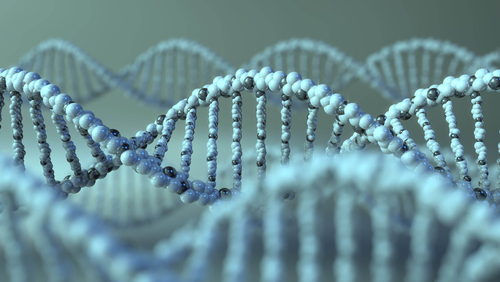The case of an infant with type 2 Gaucher disease who clearly inherited one disease-causing mutation from his father but whose mother did not show evidence of the second defective gene was detailed by a research team at the National Human Genome Research Institute (NHGRI).
Genetic mutations associated with diseases can be inherited from the parents as germline mutations (mutations to a germ cell that will become either a sperm or egg cell) or as can arise as new, or de novo, mutations. Understanding how a genetic disease is propagated is important both to a proper diagnosis and genetic counseling.
The study “Type 2 Gaucher disease in an infant despite a normal maternal glucocerebrosidase gene” was published in the American Journal of Medical Genetics.
Gaucher is a lysosomal storage disorder caused by deficiencies in the enzyme glucocerbrosidase (GCase) due to mutations in the GBA1 gene. It is often inherited in an autosomal recessive manner, meaning a child must acquire two copies of mutations in the gene, one from the father and other from the mother, to develop the disease.
Depending on the involvement of the central nervous system, it is also classified into three types. Acute neuronopathic Gaucher disease, or type 2, has the earliest disease onset and is quite severe.
Cases have recently been reported that do not follow autosomal recessive inheritance, suggesting that new mutations affecting the sex cells (sperm or ovum) arise in Gaucher — including the case reported by a team led by Nahid Tayebi, a staff scientist in the molecular neurogenetics section of NHGRI.
Genetic analysis of the child confirmed the presence of the Arg257Gln mutation in the GBA1 gene, which was also present on the father genetic record. The second mutation found in the child’s DNA, identified as Gly202Arg, could not be found in the mother’s profile as expected.
Additional genetic and biochemical analyses confirmed the absence of mutations affecting the GBA1 gene and enzyme activity within normal range in the mother. These findings suggested that the child’s second mutation was a new germline mutation.
“This is now the third reported case with de novo or germline mutations on the maternal allele associated with type 2 GD [Gaucher disease],” the researchers wrote. “This situation should be considered in future cases, as it has considerable relevance for genetic counseling.”
In all three cases, they added, “the father was a GBA1 mutation carrier, while the de novo mutation occurred in the maternal germline DNA.”
Given that type 2 Gaucher disease is rare, three reported cases of de novo disease is notable and the researchers believe such non-traditional inheritance merits further study.


